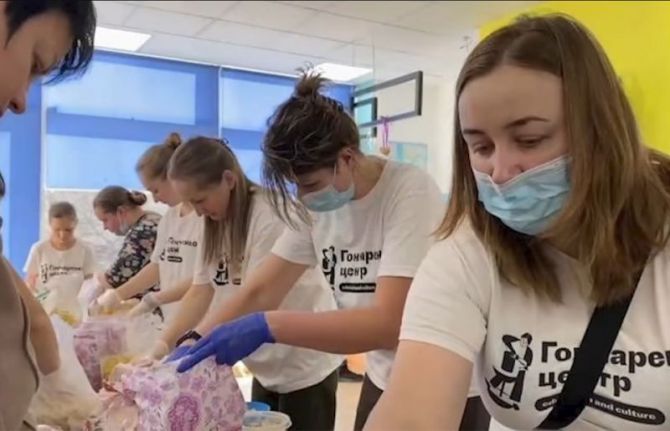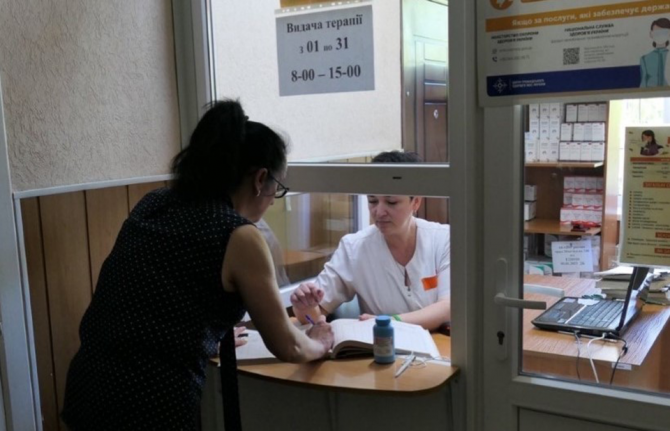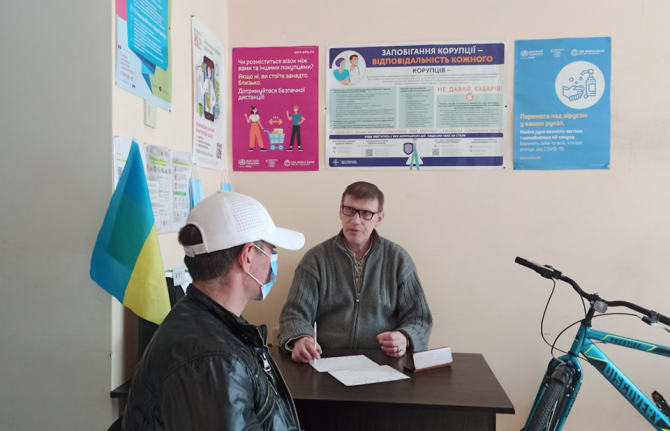



Press Statement
One year on: We must sustain the HIV response in Ukraine
23 February 2023 23 February 2023One year on, the war in Ukraine continues to inflict massive suffering and destruction. Since the start of the war on 24 February 2022, more than 13.5 million people have been internally displaced or forced to flee to neighboring countries as refugees, including people living with HIV and key populations.
Ukraine, the country with the second-largest AIDS epidemic in the Eastern Europe and Central Asia region, has been hit hard by the war.
The country was making strong progress in the AIDS response by: 1) increasing the number of people living with HIV on life-saving medicine (more than 150 000 people are on treatment out of 240 000 living with HIV); 2) working hand in hand with community-based organisations and 3) reaching full state financing of innovative HIV prevention services among key populations.
The shock of the war pushed all stakeholders to protect those precious gains.
The government of Ukraine and civil society partners have received enough anti-retroviral therapy (ARV), tuberculosis medicine, and opioid substitution therapy (OST) to provide uninterrupted treatment for everyone with the support of the Global Fund to Fight AIDS, Tuberculosis and Malaria, the United States President’s Emergency Plan for AIDS Relief (PEPFAR), UNAIDS, and other partners.
Civil society has been the engine of the national HIV response along with the Ukrainian Public Health Centre before the war and throughout the year. They have delivered services, medicines, and humanitarian aid to those in need without fail despite bombings, attacks, lack of electricity and reduced access to the east and south of the country.
This effort needs our ongoing support and funding. We cannot let Ukraine’s HIV response fall back.
UN agencies and partners on the ground have been working closely with local authorities to reach and help people in need. More recently they have delivered humanitarian assistance to hard hit territories in the country that have only now become accessible.
“Delivering essential aid and assistance relies on collaboration,” said Winnie Byanyima, UNAIDS Executive Director. “A coalition of government, civil society and international organisations has been and continues to be a cornerstone of the effective HIV response in Ukraine during the war. UNAIDS stands in solidarity with all the people and our partners working so hard on the frontlines.”
A UNAIDS Emergency Fund has enabled partners across the country to sustain HIV care and support services, as well as providing direct humanitarian assistance and targeted support to the most vulnerable. This has meant, for example, creating dozens of shelters for internally displaced persons, including people who use drugs, LGBTIQ+ people, and other key populations linking HIV service providers with available humanitarian assistance programmes. The Fund has received support from the Red Cross Monaco, the United States of America and Germany.
With further funding from Germany, civil society organizations in Moldova, Poland, and other neighboring countries united their efforts to improve access to services for Ukrainian refugees living with HIV.
UNAIDS has issued an urgent call to the international community for additional funding for civil society organisations to keep providing essential HIV support services in Ukraine and in countries receiving refugees in need of HIV services.
UNAIDS will continue to support HIV prevention, testing, treatment, care and support for people across Ukraine affected by the war and people displaced by the conflict.
UNAIDS
The Joint United Nations Programme on HIV/AIDS (UNAIDS) leads and inspires the world to achieve its shared vision of zero new HIV infections, zero discrimination and zero AIDS-related deaths. UNAIDS unites the efforts of 11 UN organizations—UNHCR, UNICEF, WFP, UNDP, UNFPA, UNODC, UN Women, ILO, UNESCO, WHO and the World Bank—and works closely with global and national partners towards ending the AIDS epidemic by 2030 as part of the Sustainable Development Goals. Learn more at unaids.org and connect with us on Facebook, Twitter, Instagram and YouTube.
